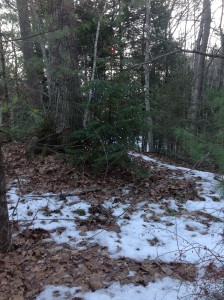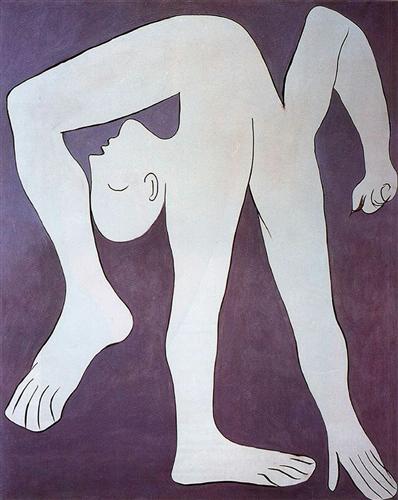Every so often, events, or words, fall and align themselves just so. You may be muddling along amid the little collisions of a day, making a mess of this or that, when you are taken over by a moment of grace, when, after a moment, you look out and say, “that is, or sounds, as it should be.” Part of what has kept me attending to Henry Thoreau over time is his habit of finding and recording such moments; he teaches me to be alert for the same.
And so it was that during a recent holiday drive from family to family, we slipped a disc into the car’s audio system and began to listen to a recorded essay sent my way by a teacher-friend some months before. The silvered disc had been in the car all that time, but I am slow to change habits, and I’d never adopted the one of listening to prose on tape or disc. Slow study, I know. Let’s just say that the delay in listening to Franklin Burroughs read his essay Compression Wood made it all the more pleasurable.
Summarizing Burrough’s essay – 52 minutes in reading – is beyond the scope of this post, but I want to both recommend it and think a bit about a moment early in the piece. Here’s the moment:
“It probably doesn’t make much difference whether you stay home or light out for the territories. Even Thoreau, who strove to shrink the gap between vocation and location to the disappearing point, often felt, as he said, ‘a certain doubleness, by which I stand as remote from myself as from another,’ and that enabled him to see Concord as though it were a distant land from which he was writing home to a kinsman. Something about writing, or even about the committed kind of reading that is a vicarious form of writing, takes you well away from your life and makes you homesick for it.” – Franklin Burroughs, Compression Wood (first published in The American Scholar, Vol.67, No. 2, Spring, 1998)
Here, of course, is Henry Thoreau, whose spirit runs through the essay even as his name does not reappear. And there is the beauty of the phrased summary of Thoreau’s effort “to shrink the gap between vocation and location to the disappearing point.” But what compelled me was a full-body feeling of assent that to write or read well, to find your way to some truth, requires moving “well away from your life,” where you can then be “homesick for it.”
Yearning, it struck me, is a fine way to be awake to your life, which vibrates then like a plucked string. Every day when we write or read or walk, we create this distance. And then, with some luck and commitment, we find our way home. This seems a good way to aim toward the new year.
Added note: I’ve provided a link to a podcast of Burroughs essay, which contains a territory expansive and wonderful. It is a perfect companion when you are going somewhere.
Podcast link: http://www.bowdoin.edu/podcasts/audio/franklin-burroughs-compression-wood.mp3


